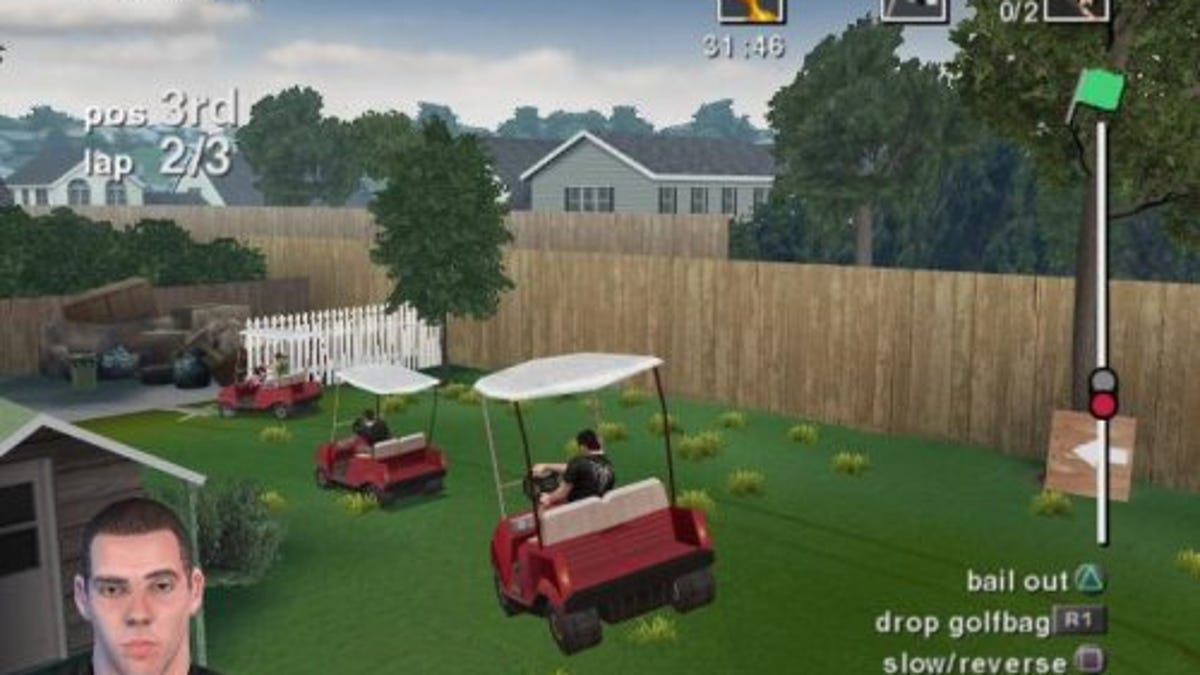The Challenge of Adapting Jackass into a Video Game
A Nostalgic Return to Chaos
Recently, fans were treated to the latest installment of the Jackass franchise, marking a joyful return for many after two years of pandemic-induced isolation. The familiar faces and outrageous antics provide a comforting sense of normalcy in 2022. However, this isn’t the first time Jackass has ventured beyond its original format; back in 2007, following the release of its second film and five years post-show finale, an attempt was made to create a video game based on this beloved series.
The Attempt at Gaming Glory
Released for platforms like PSP and PS2 in 2007—with a Nintendo DS version following shortly—Jackass: The Video Game aimed to capture the essence of what made the show so popular. Developed by Sidhe Interactive and published by Red Mile Entertainment, it sought to translate the wild stunts and comedic chaos into an interactive experience.
But how does one encapsulate such reckless fun within a gaming framework? If your answer involves mini-games featuring cast members engaging in zany challenges, you’re on track with what developers envisioned.
Mini-Games vs. Authenticity
On paper, creating various mini-games seems like an effective way to replicate the frenetic energy that defines both Jackass films and episodes. However, even if these games had been well-executed (which they largely were not) or boasted hundreds of unique challenges (they didn’t), it still wouldn’t have captured what makes Jackass special. Viewers tune in not out of concern for whether Steve-O can traverse a tightrope over alligators or how stylish Johnny Knoxville looks while skateboarding through swinging obstacles.
As Ryan Dunn famously quipped about Knoxville’s ability to ”catch the ball,” “Who cares?” This sentiment resonates deeply; audiences are drawn not by individual successes but rather by watching friends engage in absurdity together—whether they succeed or fail is irrelevant.
Misguided Objectives
Unfortunately, most mini-games within Jackass: The Game revolve around achieving specific objectives akin to those found in Tony Hawk-style games—completing tasks or accumulating points. While these mechanics are standard fare for video games generally, they starkly contrast with what makes Jackass appealing: camaraderie among friends pushing each other’s limits through ridiculous dares while sharing laughs—even amidst their failures.
Transforming this ethos into gameplay was always going to be fraught with difficulty.
Capturing What Matters Most
To its credit, however, the game does incorporate elements that resonate with fans—the music tracks and voiceovers from nearly all main cast members (with Bam Margera absent due to contractual issues). This inclusion is crucial; seeing these characters engage playfully helps maintain that lighthearted spirit we associate with their antics. It allows players some relief as they chuckle at their misfortunes because everyone involved appears just as entertained as we are during those moments.
Jackass thrives on laughter shared among friends; without it—and without genuine stakes—the experience falters significantly.
Missing Stakes Diminishes Impact
In real life scenarios depicted on screen where cast members risk injury or endure humiliating situations for comedic effect lies much of what draws viewers back time after time. Some stunts have resulted in serious injuries—a grim reality that underscores their commitment but also heightens our engagement as spectators witnessing real risks taken for humor’s sake.
When playing digitally rendered versions where characters fall from heights or face comical mishaps devoid of any real consequence—what incentive do players have? Scoring fewer points hardly compares when juxtaposed against actual human experiences filled with tension and unpredictability inherent within each stunt performed live before our eyes.
While visually appealing and sonically reminiscent of its source material—this game ultimately fails at delivering anything close enough resembling true enjoyment derived from watching authentic episodes filled with genuine risk-taking behavior amongst friends engaged wholeheartedly together—even if safer alternatives might appeal more favorably towards concerned parents back then!
In conclusion: despite efforts made toward capturing essence behind beloved franchise—it remains clear that translating such raw energy into digital form presents insurmountable challenges which leave us longing instead—for those unforgettable moments only found onscreen!
